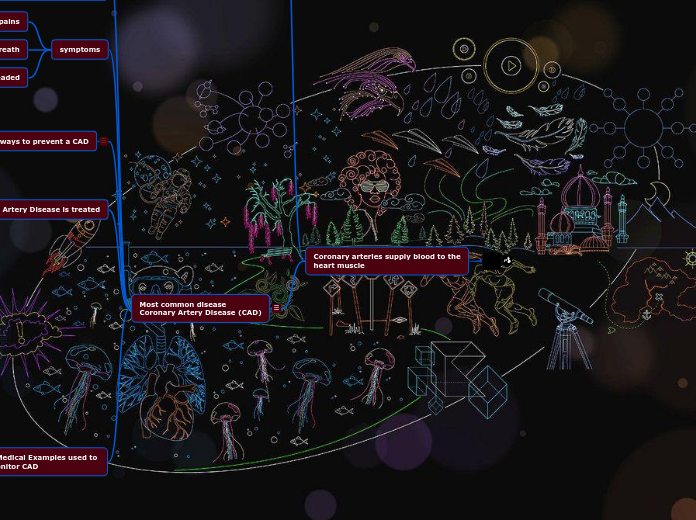Coronary arteries supply blood to the
heart muscle
Most common disease
Coronary Artery Disease (CAD)
Blockage of coronary arteries caused
by plaque a fatty build-up material. Continuous plaque collected on artery walls will narrow your arteries. Plaque can also damage arteries which stops blood from flowing to your heart muscle which can add on to other many diseases and risks.
symptoms
chest pains
shortness of breath
feeling week or light headed
ways to prevent a CAD
healthy diets
stop smoking
get your heart beat up
become more active
How a coronary Artery Disease is treated
An inflated balloon is pushed through the catheter to improve the blood flow in your arteries
to keep the dialed arteries open a tube (stent) is used
2 Medical Examples used to
monitor CAD
EKG (Electrocardiogram, ECC)
Most effective and easy to use to check
for any coronary artery disease signs/symptoms
ECG Monitor
painless test which helps to decrect for any heart problems
this test lasts a couple minutes
avoid oily and greasy creams the day of the test
it can detect blocked arteries which is known as the Coronary Artery Disease (CAD)
can detect your heartbeat and when it is abnormal which could by decreased waves
displays the electrical signal from your heart
waves shown on a monitor
this device test is avoided for people who don't experience any of the following diseases for the disease or have not had previous heart attacks
ECG device shown on patient
Cardiac CT Scan
Imaging test using x-rays to take very
close up and detailed images of your heart and blood vessels
Cardiac CT Scan
